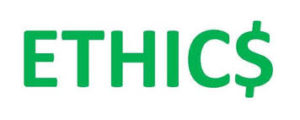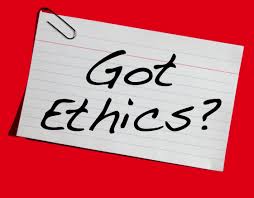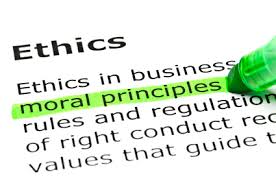Infusing Your Compliance Program with Business Ethics
 It is important to remember that companies are required to implement an ethics and compliance program. Ethics should not ever be a segregated issue carved off from a compliance program. They walk hand-in-hand, and reinforce each other at every step of the mission.
It is important to remember that companies are required to implement an ethics and compliance program. Ethics should not ever be a segregated issue carved off from a compliance program. They walk hand-in-hand, and reinforce each other at every step of the mission.
This is an important point and easily ignored. Compliance professionals often appoint a Chief Ethics Officer, separate from a Chief Compliance Officer, and the danger is when these two forces fail to coordinate and reinforce each other.
All too often I see companies with separate tracks for ethics and compliance, with hortatory statements about ethics and compliance objectives.
The challenge is to instill ethical business decisions, and the important values underlying an ethical culture, in the implementation of compliance policies and objectives. To this end, a CCO should review the company’s policies and procedures and look for opportunities to build in ethical concepts and decision-making frameworks for various policies and procedures.
There are a number of relevant areas in which to infuse ethical concepts. Consider due diligence of potential third parties, or gift and hospitality expenditures for foreign government officials.
When identifying a potential third party, decision makers should not just consider and weigh “traditional” red flags but also the question of whether engaging this third party is consistent with company’s culture and values. It is important to promote ethical values by the third-party partners you engage – it may make business sense but does it meet the company’s ethical criteria?
Similarly, it is worth considering if proposed gifts and hospitality for a foreign official is consistent with the company’s ethical culture. A company’s policy may allow a gift of $500, for example, but is the gift and the circumstances under which it is being given, consistent with the company’s ethical framework?
These are important considerations and can help a company to instill a real culture of ethics. Relevant policies should be drafted with an eye towards the company’s ethical culture and values. At a minimum, they should promote managers and employees to ask relevant questions concerning the company’s ethical values when making basic business decisions.
A company’s communications and training efforts have to reinforce this important principle. A training program keyed to ethical values and ethical business decision making is imperative, and should occur on the same track as compliance policies and procedures.
 Ethical business decision-making is not the same as training on a code of conduct. It can start with that module but can extend to separate training modules or portions of basic compliance training.
Ethical business decision-making is not the same as training on a code of conduct. It can start with that module but can extend to separate training modules or portions of basic compliance training.
Whatever messaging techniques are used to instill ethics into a compliance program, it is clear that senior management and mid-level managers have to adhere to these principles in their day-to-day activities. There are numerous opportunities to reinforce this type of thinking – internal communications, regular staff meetings and specific audience training where these issues may arise – e.g. sales, accounts payable.
Some may say I am a dreamer when it comes to this issue, but in the end, the effort is not as much as everyone thinks. It is more a way of speaking and acting. A culture of ethics should infuse everyone’s day-to-day activities. Supervisors and employees have to learn a new language and begin to live it.
















1 Response
[…] Read Full Article: Infusing Your Compliance Program with Business Ethics – Corruption, Crime & Compliance […]